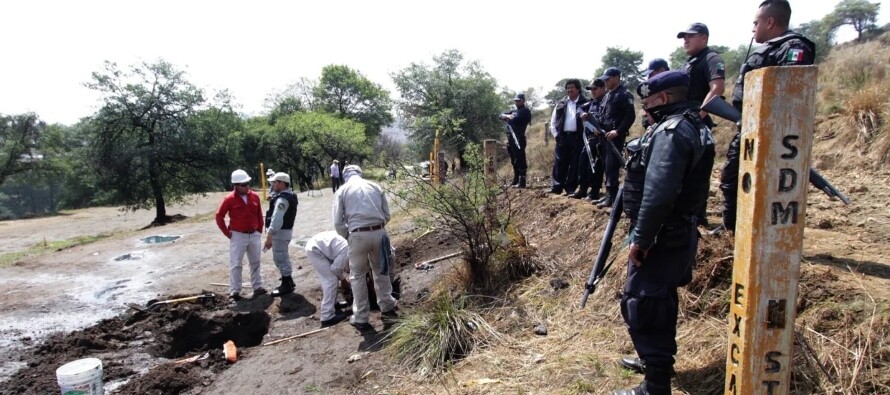
From January to August 2024, more than 8,000 illegal taps were registered in pipelines of Petróleos Mexicanos (Pemex) throughout Mexico. The entities with the highest number of these crimes were Hidalgo, State of Mexico, and Puebla, followed by Tamaulipas, Veracruz, Guanajuato, Querétaro, Baja California, and Tabasco.
According to a public policy and public security specialist, it is estimated that fuel theft involves at least 24 entities in Mexico, with variations in actors, criminal groups, and modus operandi. There is a deeply rooted culture around this crime, with different levels of involvement from civil society in places like Hidalgo and Puebla.
The Government of Andrés Manuel López Obrador ended its term with a total of 72,337 illegal fuel taps, with a daily average of 35. These taps in hydrocarbon pipelines are just a part of fuel theft in the country, known as 'huachicol'.
Experts indicate that fuel theft involves a whole criminal chain that ranges from Pemex personnel who facilitate information to people who buy the stolen product. In states like Hidalgo, Puebla, and Guanajuato, a deeply rooted social phenomenon around 'huachicoleo' is observed.
In various regions, a culture of gasoline and gas theft has been established, exemplified by the figure of the Santo Niño Huachicolero venerated by criminals. In Hidalgo, the highest number of illegal taps is recorded, highlighting the involvement of entire communities in these illicit activities.
Between 2020 and 2023, the number of illegal taps installed annually has increased, becoming a source of income for some communities, as in Guanajuato. Cases have been detected of criminal leaders providing 'social assistance' in exchange for support in these criminal acts.
Moreover, it is noted that drug trafficking organizations in Mexico, such as the Sinaloa Cartel, Los Zetas, Tijuana, Juárez, Beltrán Leyva, Gulf, La Familia Michoacana, Los Caballeros Templarios, and the Jalisco New Generation Cartel, have expanded their operations to 'huachicol', turning it into an important source of income.
Despite the criminal complaints filed by Pemex, experts warn that the authorities are not effectively addressing the entire criminal chain involved in the illegal hydrocarbon market, from transportation and storage to the distribution and purchase of stolen products.











